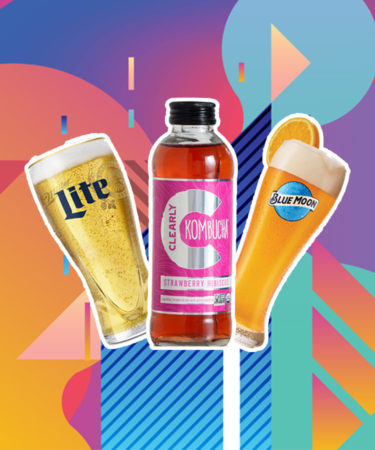Molson Coors recently announced the acquisition of Clearly Kombucha, a Fairfield, Calif.-based producer of non-alcoholic fermented tea beverages. The “booch” maker marks Molson Coors’ first purchase of a non-alcoholic beverage brand.
As Brewbound reports, Clearly Kombucha described the move on social media as an “exciting” partnership that will help grow the brand, and that, “rest assured,” it will continue “crafting authentic fermented beverages.”
Sounds familiar. Pretty much every craft brewery that has sold to another company has said the same thing, or some version of it, in its original announcement.
Of course, Molson Coors isn’t the only one moving in on teetotalers or those thirsty for healthy-leaning beverages. Anheuser-Busch owns Hiball Inc., a natural energy drink and organic soda maker. A-B also partnered with Starbucks to make and sell Teavana-brand bottled tea. A-B’s “disruptive” venture capital arm, ZX Ventures, invested in Kombrewcha (a slightly alcoholic kombucha); Canvas (a non-alcoholic drink made with brewers’ spent grain); and Owl’s Brew (makers of tea-focused cocktail mixers and Radlers).
Clearly, brewing companies with financial backing are seeing consumer demand for alternative beverages, and they’re investing.
(Small brewers are capitalizing on the trend, too. In fact, I recently tried a beer-kombucha hybrid from Rogue, Kulture Klash. It was weird!)
Is this a clash of cultures? I don’t think so. Hybrid beverages may not be the future (as much as I want them to be), but from my seat, many of my peers and members of the beer industry are thirsty for beverage experiences that make us feel good, be it beer, probiotic soda, or La Croix.
As with craft beer, acquisitions dampen the romance of feel-good brews like kombucha. As long as we pay attention enough to support collaboration and not consolidation, beer and non-alcohol beverage companies should get to know each other. And, ultimately profit from one another.
Millennials Don’t Think Beer Is ‘Special’ or ‘Sophisticated’
Beer is neither special nor sophisticated to young millennials, according to a devastating survey from the Beer Institute (BI). At its annual trade meeting last week, the BI revealed survey results depicting 21-to-24-year-old drinkers’ attitudes toward beer, wine, and spirits — and the results aren’t pretty.
According to the survey, only 16 percent of those who drank alcohol in the last week, and 23 percent in the last month, view beer as “a special treat.” Numbers for both wine and spirits were higher, Brewbound reports.
And worse, only 2 percent of young alcohol consumers in the last week and 4 percent in the last month say they view beer as “sophisticated.”
Are millennials blinded by rosé-colored glasses? If 20-somethings don’t come around to respecting beer, the beer industry will actually be in trouble.
It’s time for more brewers to help customers see that beer can fit any occasion, be it a casual couch surf or a fancy dinner party. A few suggestions: put food-pairing options on websites and menus; host beer dinners with local chefs; push that cork-and-caged bière brut as a party gift; market that barrel-aged sour as a drink worthy of a holiday celebration. Many brewers are doing this, but I’d love to see more.
Dallas’s Deep Ellum Brewing Sells to Canarchy Craft Brewery Collective
Deep Ellum Brewing, based in Dallas, has been acquired by by Canarchy Craft Brewery Collective, a group of five brewers backed by a private equity firm, Fireman Capital Partners.
By selling to Canarchy, Deep Ellum gets to stay in business, increase its production, and expand distribution while remaining, by the Brewers Association’s definition, “independent.” It’s having its cake and eating it, too.
The move is a good example of how growing regional breweries can save themselves and keep their “collective” conscious clean. As John Reardon, Deep Ellum founder, said in a press release: “We’ve been looking for the right partner to grow the Deep Ellum brand and I believe we’ve found that with CANarchy. They’re a group of like-minded people that have not conformed to the status-quo and have hit critical mass on the path of coming together and remaining independent. We’re all in.”
And, he told Brewbound: “Immediately, it helps me finalize this brewery expansion that we’ve been kind of limping through for over the last, probably, year now. I mean, capacity at the flip of a light switch. You really couldn’t ask for anything better. And the fact that it still remains brewed in Texas, which was important to us.”
In this turbulent beer market, it turns out independence might also mean codependence. This codependent or “collective” model is the future for regional and rapidly growing breweries. That stormy gray area pinning mid-sized brewers between multinational corporate brewers and hyperlocal brewers is finally finding the light. Now, whether calling yourself “independent” when you’re backed by a private equity firm and part of a mini-conglomerate — sorry, collective — is kosher is another conversation. But if models like Canarchy are the way to keep craft beer alive, I’m here for it.
